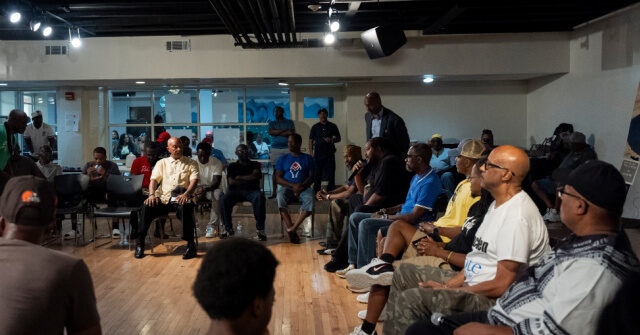Vice President Kamala Harris has been actively seeking to connect with Black male voters, emphasizing her unique position as a trailblazer within the Biden administration. In a recent video posted on X (formerly Twitter), she candidly announced herself as the “first vice president to grow chili peppers” at the vice presidential residence. This quirky tidbit was showcased as part of her campaign to resonate with constituents, highlighting her cultivation of “scotch bonnet peppers.” By sharing such personal anecdotes, Harris aims to create a sense of relatability and bridge gaps with Black men, a demographic she is less popular with currently.
In previous interviews, Harris reiterated her claims about her pepper-growing endeavors, once stating, “I’m pretty sure I’m the first vice president of the United States that has been growing scotch bonnet peppers, and jalapeno peppers, and I’ve grown Thai chili peppers,” which she mentioned in the context of self-care alongside her regular workout routine. This consistent narrative links her role as vice president to her identity and daily activities, presenting herself as an approachable and engaged figure. Such personal touches attempt to humanize the political realm and make her more relatable to potential voters.
While Harris is making headlines with her unique claims, historical records present a counter-narrative that might undermine her assertions. Former President Thomas Jefferson, known for his fascinating relationship with gardening, reportedly grew cayenne peppers at his Monticello estate and documented their planting as early as 1767. Jefferson’s gardening legacy could challenge Harris’s claim since he served as vice president from 1797 to 1801, indicating that perhaps she is not the first vice president to engage in pepper cultivation as she asserts. This juxtaposition illustrates the often complex nature of historical narratives in political discourse.
Harris’s focus on garnering support from Black voters comes in the backdrop of mixed polling results. A recent New York Times/Siena College poll revealed a troubling trend, showing 78 percent of Black voters supported her — down significantly from the 90 percent support for President Biden during the 2020 election. This decline signals a warning for the Biden-Harris campaign as they approach the upcoming election cycle. In a rallying speech in Philadelphia, former President Barack Obama stressed the importance of revitalizing Black voter support for Harris, emphasizing that unity is critical for success in the electoral race.
Despite the criticism and declining metrics, a recent Washington Post/Ipsos poll suggested there remains a nucleus of support among Black voters, with 82 percent indicating they would “definitely” or “probably” support Harris in the forthcoming election, a rise from 74 percent for Biden reported earlier that year. Such optimism among some segments of the electorate indicates that while challenges persist, there exists a foundation for engagement and outreach efforts, particularly aimed at young Black male voters. This data provides a glimmer of hope for the Harris campaign but highlights the need for sustained efforts to strengthen these connections.
In essence, Vice President Kamala Harris’s engagement with Black male voters through her pepper-growing anecdotes is a strategic attempt to showcase her individuality and relate personally to constituents. While historical claims about pepper cultivation may complicate her narrative, the ongoing dialogue around her candidacy reveals a pressing need for revitalized support from the Black community as they approach the next presidential election. Balancing personal stories with broader electoral strategies will be pivotal for Harris as she aims to forge stronger connections while navigating the challenges laid bare by polling data.

